Worm castings are the unsung heroes of a flourishing garden, and today we're digging into their magic. This soil supercharger is not just any organic matter; it's a game-changer for plant health and soil vitality. With worm castings, you'll see your plants thrive as they pack essential nutrients in an accessible form that roots love.
Gardeners looking to amp up their soil structure will find worm poop offers much more than conventional manure. Vermiculture, the official name for this process, doesn't just feed plants; it builds ecosystems teeming with beneficial microbes, bolsters water retention, and even wards off pests like spider mites. So whether you're starting seeds or boosting beds, these natural nuggets lay the groundwork for success from root to bloom.
We’ll walk through how to harvest this black gold at home and use it right in your backyard—let’s get growing!
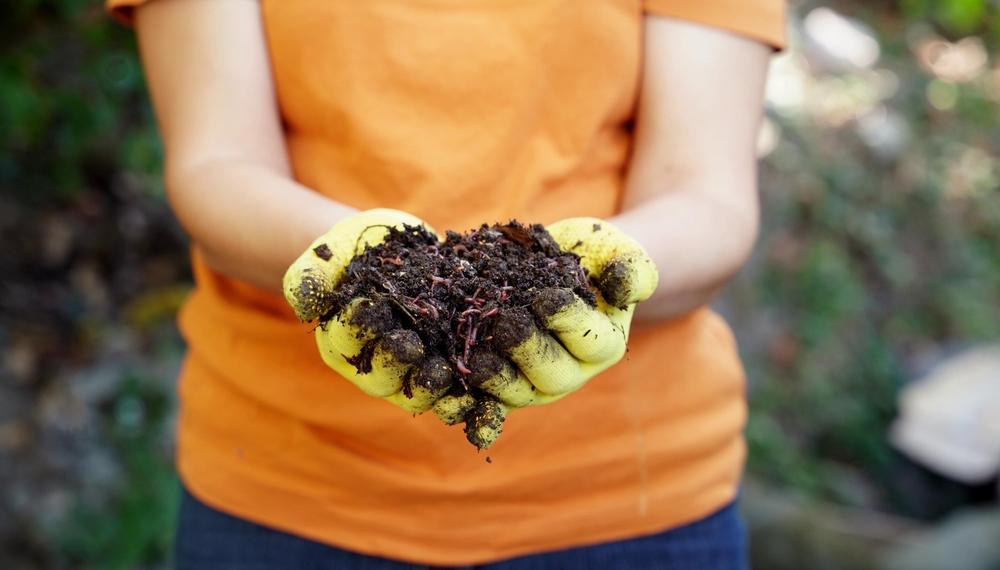
Gardener holds worms & casting
The Fundamentals of Worm Castings
Worm castings, often hailed as nature's secret for a thriving garden, are the rich end-product after earthworms digest organic material. Think of it like a gourmet meal for your plants—packed with all they crave without any junk. There's a reason gardener's call this 'Black Gold.'
What Makes Worm Castings an Organic Superfood for Plants
Gardeners everywhere might wonder what makes worm castings manure so special. It's simple: these little guys produce something akin to black gold for your soil. The process starts when worms feast on kitchen scraps and other organic materials in their bin. They then excrete worm poo that resembles football-shaped particles, which is no ordinary waste—it’s teeming with essential nutrients and beneficial microbes that support plant growth.
This natural fertilizer not only adds oodles of organic matter but also releases nutrients slowly, making sure your potted plants or garden bed get just the right amount over time—a kind way to avoid burning them with too much goodness at once. So whether you're growing heirloom tomatoes or trying to keep those fussy orchids happy indoors, adding worm castings can give them the edge they need.
Enhancing Soil Structure with Nature's Aerators
Beyond feeding your green friends well-balanced meals straight from a worm bin, there’s more magic at work here—the structural perks. When you improve soil structure by mixing in some earthworm castings, you’re actually enhancing its ability to let roots breathe and water flow through easily; this means less standing water and happier root systems.
The beauty lies in how these tiny football-shaped particles create pockets within the soil that boost air circulation down where it counts—in amongst the roots of everything from delicate seedlings to mighty oak trees (although maybe don’t try planting one of those in your backyard veggie patch). And if we talk stats? Well-placed trust comes into play because organically produced wonders like worm casting offer impressive benefits such as improved drainage and increased water retention—all key players in nurturing robust gardens brimming with life.
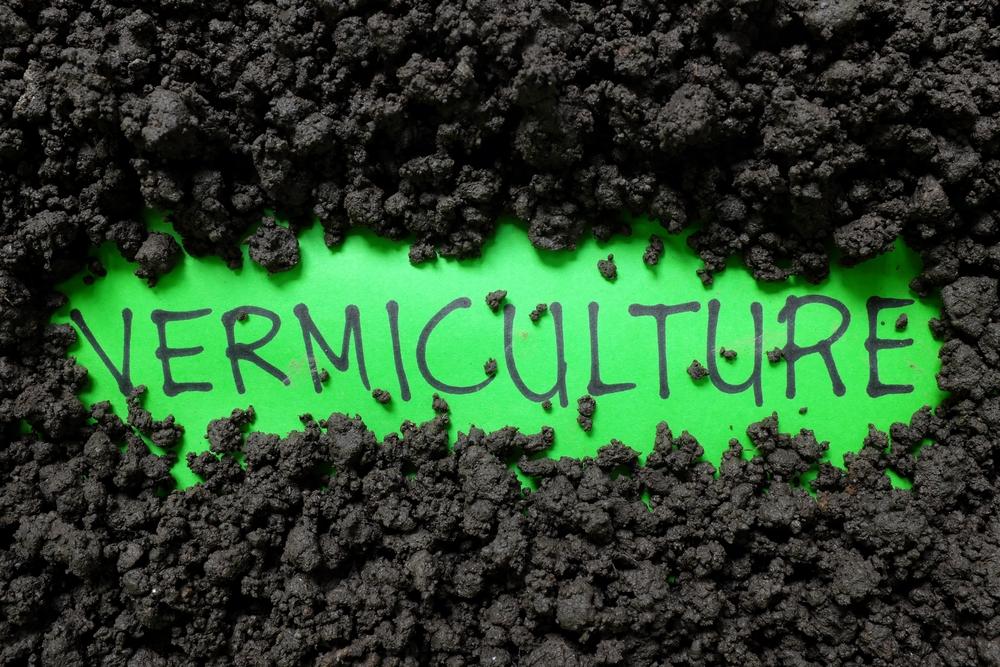
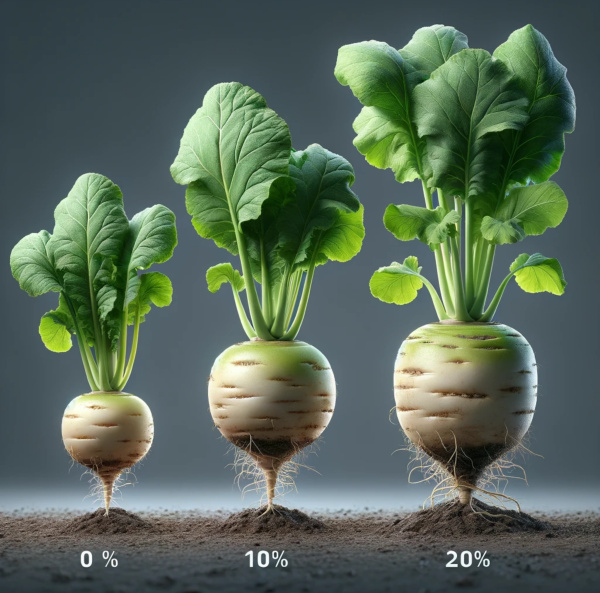
Incorporating Worm Castings into Your Gardening Routine
Sprinkling fairy dust over your flower beds—that’s essentially what happens when you add worm castings into gardening practices. But let me be clear: no mythical creatures were involved—just hard-working worms turning food waste into treasure. You don't need much either, only 10-20% of your total soil volume needs to be worm castings for the maximum effect.
Imagine giving your plants a superfood that caters to their every need without the risk of overindulgence. That's exactly what worm castings offer - an organic form of fertilizer so gentle, you can't burn your plants with it.
The proof can be seen using an image, which is worth a thousand words as far as we're concerned. The illustration seen alongside this paragraph is based on a study performed by Rhonda Sherman, and her colleagues at North Carolina State University in Raleigh, North Carolina. Their study yielded a turnip comparison photo that we believe says it all. Just adding 10% by volume to your soil can make an incredible difference, and just look at the 20% example.
Boosting Garden Beds with Black Gold
Add worm castings to your garden beds and watch as they transform lackluster soil into a nutrient-rich haven for plant roots. Organic worm castings are more than just waste; they're packed with essential nutrients and beneficial microbes that give new life to depleted earth. They improve soil structure by breaking up heavy clay and helping sandy soils retain moisture. But don't just take my word for it—countless green thumbs swear by this stuff.
Mix add these black gold granules directly into the topsoil or layer them on as mulch—it’s like wrapping your garden bed in a cozy blanket made of growth boosters. The magic doesn’t stop there; because worms feast on everything from kitchen scraps to leaf litter, their poop (yes, we’re talking about worm poo here) is free from harmful chemicals often found in synthetic fertilizers.
From Seedlings to Harvest – The Worm Casting Advantage
Kick-start seedling growth by incorporating worm castings right where it matters most: at the root level. As nature's slow release supplement, these tiny football-shaped particles pack a punch when used during seed starting or transplanting seedlings—they resemble small miracles waiting beneath the surface. Whether you're growing prize-winning tomatoes or sprucing up potted plants indoors, adding this secret ingredient ensures robust beginnings.
And let's not forget how versatile these wonders are; whether improving water retention for thirsty cucumbers or enhancing drainage for delicate herbs, garden soil welcomes this amendment with open arms—and stronger stems. Spider mites? Say goodbye. Trace elements within earthworm castings show those pesky critters who’s boss while ensuring healthy blooms all season long.
Key Takeaway:
Worm castings are like a gourmet meal for plants, packed with slow-releasing nutrients and beneficial microbes that boost growth. They also improve soil structure, promoting root health and water management—key to robust gardens.
Transform your garden by adding worm castings—a superfood for plants that can't be overdone. This organic black gold improves soil, boosts growth from seedlings to harvest, and even fends off pests.
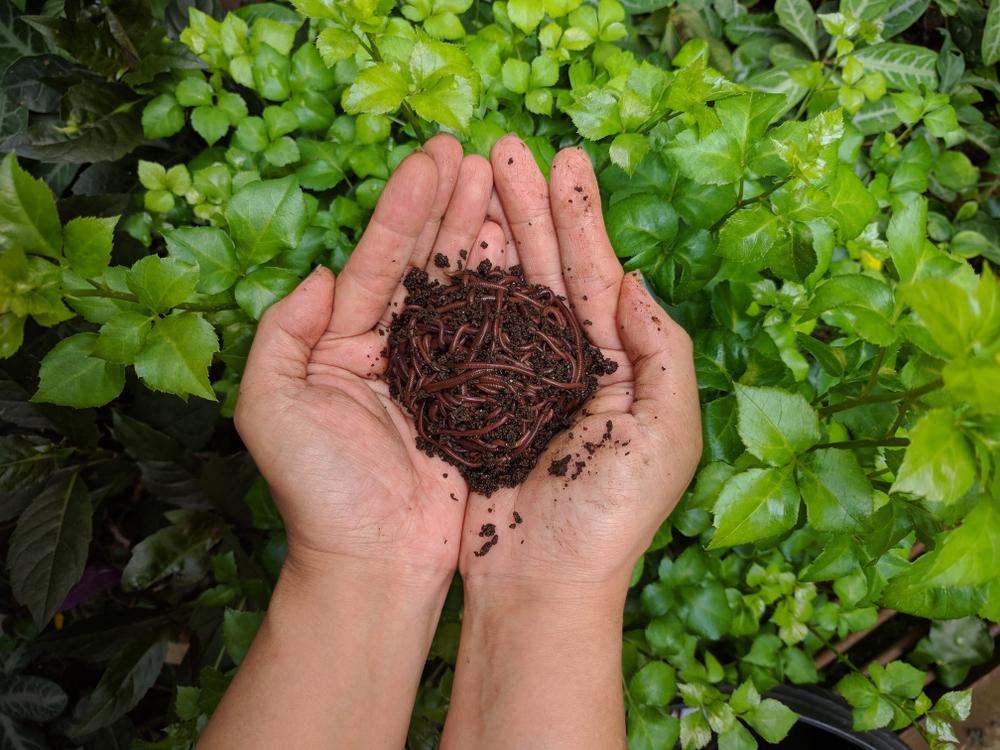
Brewing Nutrient-Rich Worm Tea from Castings
As great as worm castings are, brewing worm tea with worm castings can do even greater wonders for your garden. It’s not just any old brew; it's a concoction brimming with life, ready to supercharge plant growth.
The Brewing Process for Compost Tea
Making worm tea is like crafting the perfect cup of coffee—there’s an art to getting it right. Start by filling a bucket or large container with water, preferably rainwater or dechlorinated tap water because chlorine can harm the beneficial microbes you're trying to cultivate. Then add about two cups of organic worm castings per gallon of water.
To get these helpful critters moving, aerate the mixture using an aquarium pump or similar device; this will introduce oxygen and create the ideal environment for microbial activity in your compost tea. You'll want this mix to steep anywhere from 24 hours up until 48 hours—the sweet spot where magic happens without going sour.
See our Worm Tea Recipe Here (for both one and five-gallon applications)
Benefits of Using Worm Tea as a Soil Amendment
When used as foliar spray or soil drench, homemade worm casting tea isn't just free organic fertilizer—it's liquid gold for plants. Packed with essential nutrients and beneficial microbes that improve soil structure, it works wonders on potted plants too.
This rich elixir helps protect against pesky invaders like spider mites while also promoting robust seedling growth through improved nutrient uptake facilitated by its microbe-rich content. Plus, unlike synthetic fertilizers, there’s no risk you’ll burn your precious greens when they sip on this gentle yet potent tonic.
Multiplying Effects Beyond Basic Fertilization
As if those perks weren’t enough—worm tea doesn’t stop at feeding plants directly but enriches soil health over time too. Adding trace elements back into depleted soils ensures long-term fertility beyond what traditional compost could offer alone. With each application improving moisture retention capabilities alongside enhancing drainage efficiency thanks partly due their ability resemble football-shaped particles which keep things loose below ground level.
Key Takeaway:
Brew your garden a cup of worm tea to boost plant growth and soil health. Just mix worm castings with water, aerate it, and let the magic brew for up to 48 hours. This liquid gold feeds plants, fends off pests, and improves soil structure without the burn risk of synthetic fertilizers.
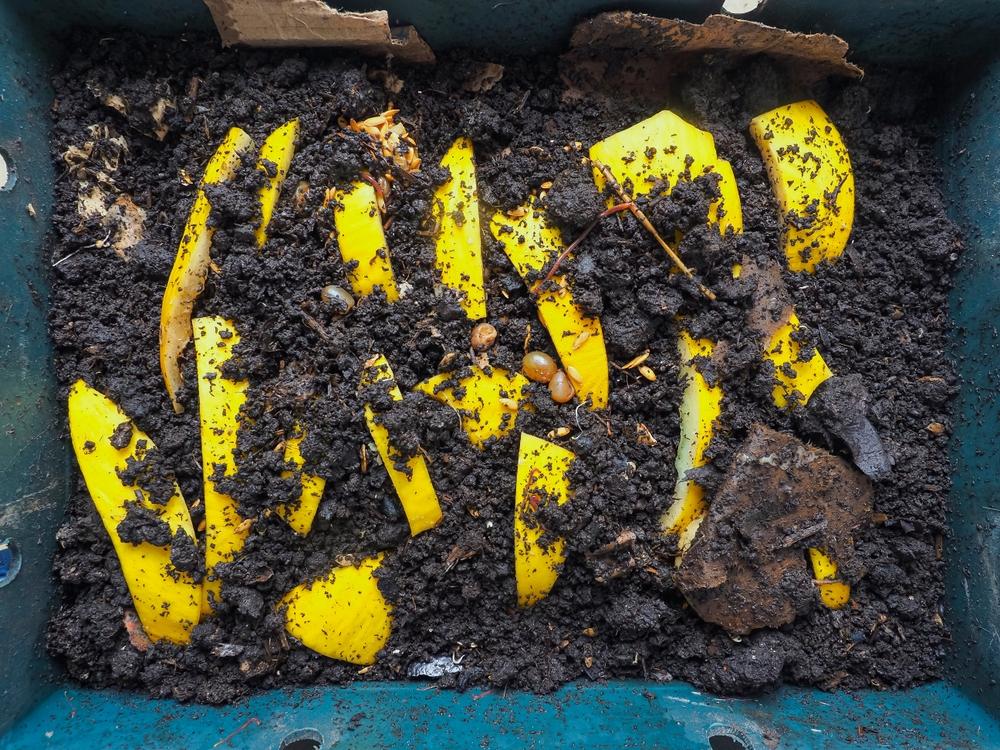
Food scraps in homemade worm bin
Vermicomposting at Home – A DIY Guide
Turning your kitchen scraps into nutrient-rich organic fertilizer might sound like a magician's trick, but with vermicomposting, it’s as real as it gets. This eco-friendly process uses the natural digestion power of worms to break down organic materials and produce worm castings manure - an all-star soil amendment.
Setting Up Your Worm Bin
To kick things off, you'll need a cozy home for your wriggly workforce. Setting up a worm bin is simple: find or purchase a container that allows for breathability and drainage—think wooden crates or plastic bins with holes punched in. The size of your worm bin depends on how much food waste you typically generate; remember, these creatures can eat their body weight in scraps each day.
A balanced bedding material such as shredded newspaper or cardboard provides comfort and cover for the worms while they feast on your leftover salad trimmings and apple cores. And don't forget about moisture. Worms thrive in damp environments—but not too wet—so aim for the consistency of a wrung-out sponge when adding water.
The Right Kind of Worms
You can’t just pluck any old earthworm from your garden bed; red wigglers (Eisenia fetida) are the superstars here. These little critters have voracious appetites making them perfect candidates for turning heaps of kitchen scraps into compost gold faster than traditional backyard composting methods.
Purchasing worm starters from reputable sources ensures that you're introducing healthy workers ready to tackle those banana peels without bringing unwanted pests like spider mites along with them.
Feeding Your Vermicompost Army
Your new pets aren't picky eaters—they’ll take most fruit and vegetable leftovers off your hands happily enough. But be kind: avoid giving them overly processed foods or anything spicy that could upset their delicate systems. Regular feedings will keep them productive; however, overfeeding may lead to odors—a signal something's amiss inside that mini ecosystem.
Maintaining Optimal Conditions
Making sure conditions stay ideal is crucial for successful vermicomposting at home—it’s where science meets artistry in this gardening practice:
- Maintain temperatures between 55-77 degrees Fahrenheit because extreme heat or cold can harm our squiggly friends—and we want happy worms.
- Monitor moisture levels regularly since dry conditions slow decomposition rates while excess water drowns out oxygen vital to our underground allies’ survival.
Remember: When harvesting worm castings manure—or 'black gold' as some call it—from your own DIY vermiculture setup, ensure proper screening techniques separate pure casts from unfinished materials before beginning this process.
Key Takeaway:
Turn kitchen scraps into garden gold with a DIY vermicompost bin. It's easy: just get the right worms, make them cozy, and feed 'em well.
Maintain your worm haven between 55-77 degrees Fahrenheit and keep it as moist as a wrung-out sponge for top-notch composting.
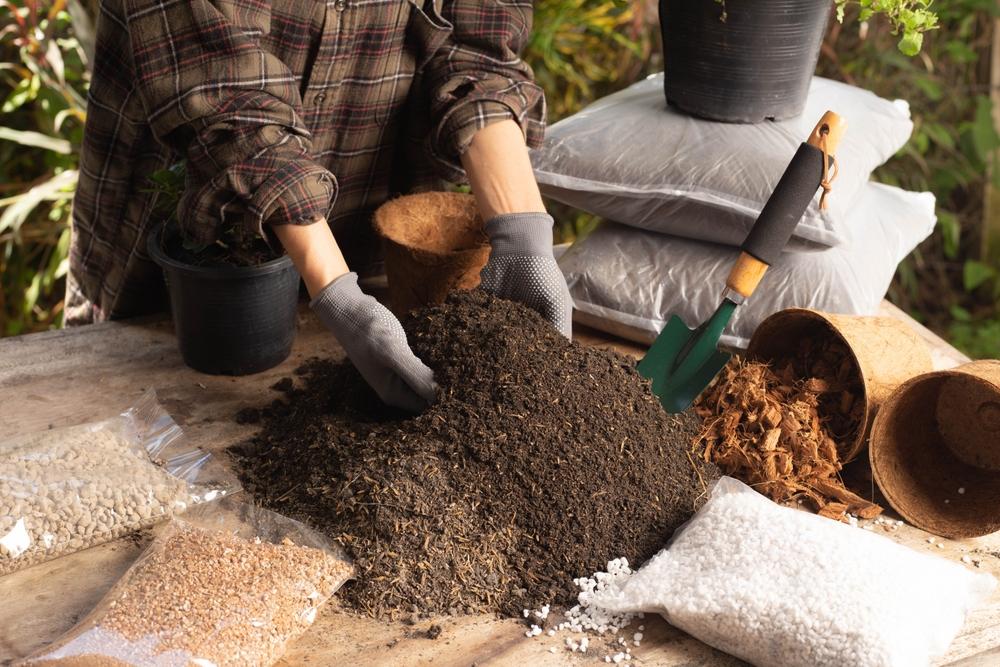
Mixing potting soils with castings
FAQs in Relation to Worm Castings
What are the benefits of worm castings?
Worm castings enrich soil with nutrients, improve structure for root growth, and boost plant health without the risk of chemical burn.
What is worm castings?
A byproduct of earthworm digestion, this natural fertilizer packs a punch with essential nutrients for plants.
What does adding worm castings do?
Adds vital minerals to soil, promotes strong roots and foliage growth while improving moisture retention capacity.
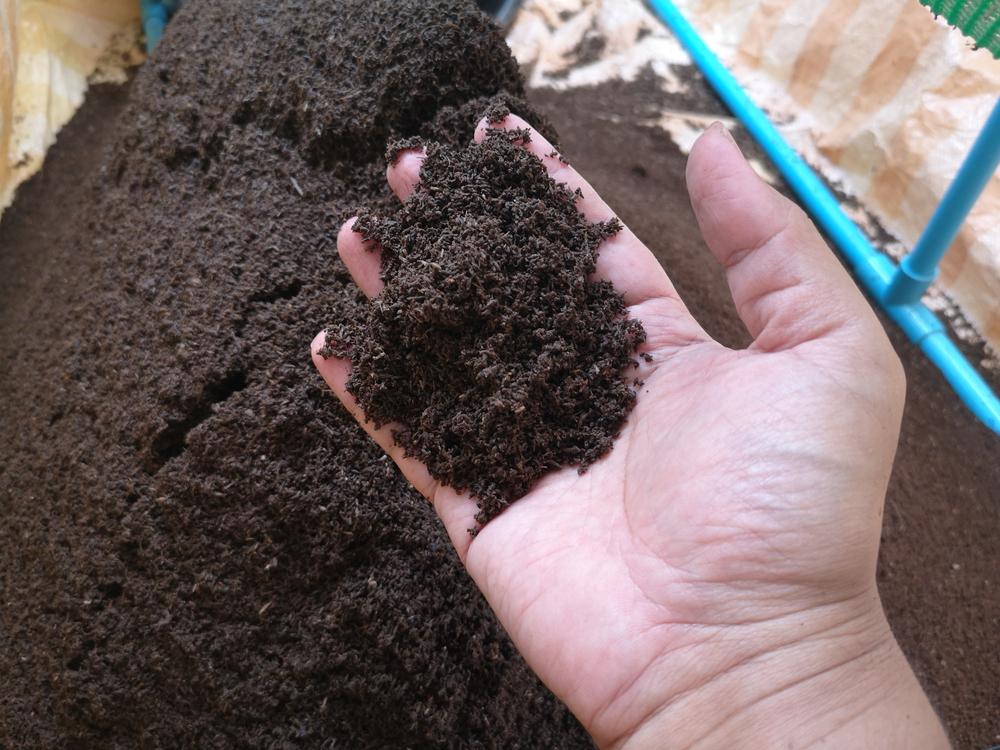
Pure Worm Castings
Conclusion
Worm castings, the soil's unsung heroes, pack a punch for plant growth. They're nutrient-dense and root-friendly.
Add them to your garden beds; watch seedlings flourish with that extra vigor. Make worm tea; it's liquid gold for leaves and roots alike.
Vermicomposting at home? It’s simpler than you think. You’ll create organic fertilizers that feed plants and nurture soil life.
Remember: good things grow from the ground up—start with superior soil. Let worm castings lead the way to lushness in your garden oasis.



